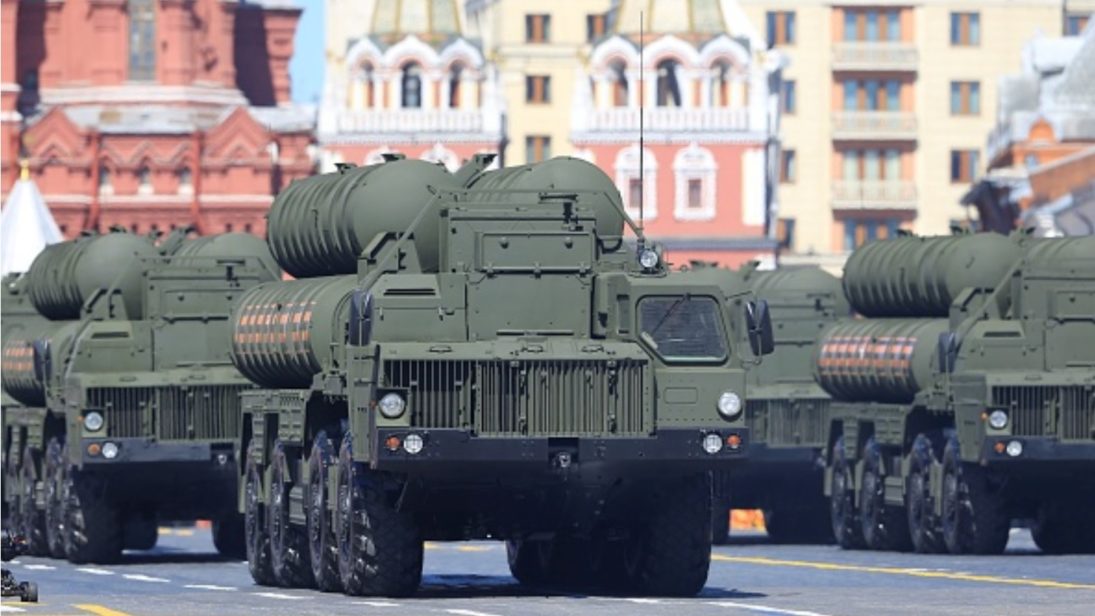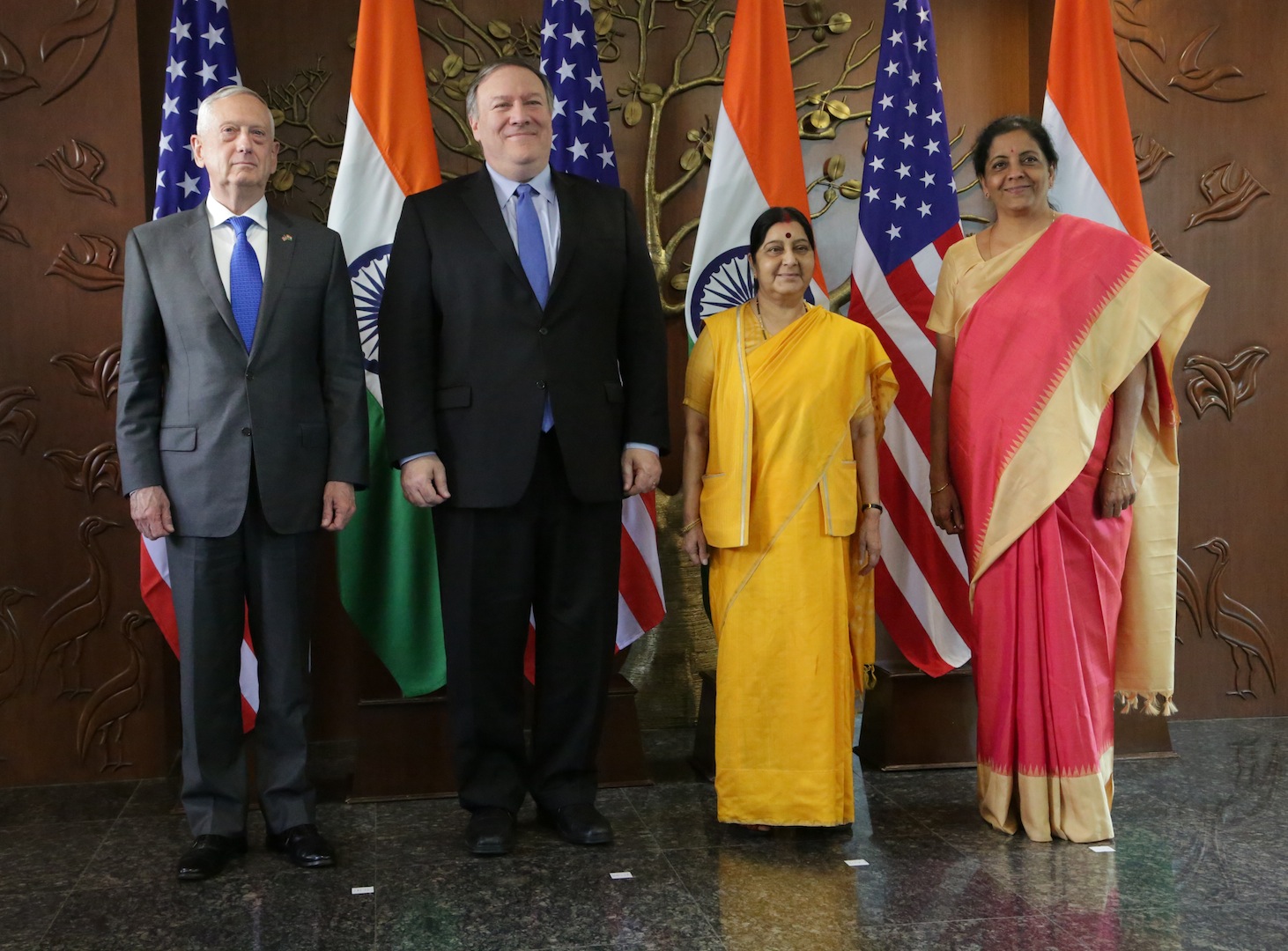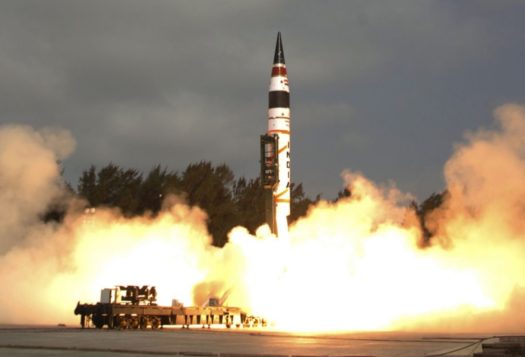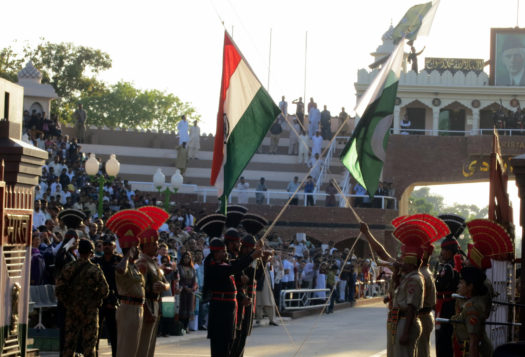
Three years ago, in December 2015, India approved the purchase of the Russian-made S-400 Triumf air defense system, an anti-ballistic missile, anti-aircraft system, with the aim of deploying five of the batteries against China and Pakistan. Last week, after multiple rounds of negotiations, India and Russia closed the deal at close to USD 5.2 billion with an official announcement included in a joint statement between Russia and India during Russian President Vladimir Putin’s visit to New Delhi. With the high import of this deal, its impact on New Delhi’s defense capabilities and the country’s relations with great powers, as well as the deal’s regional implications merit consideration. The India-Russia S-400 deal could negatively impact the Indo-U.S. relationship and significantly alter India’s regional security environment.
S-400 Deal in Context: History and Motivations
The S-400 Triumf (NATO reporting name: SA-21 Growler) is Russia’s most advanced air defense system. It can destroy incoming missiles, stealth fighter jets, aircraft, and drones at a range of 400 km; it also possesses radars capable of tracking hundreds of targets simultaneously. The system can intercept ballistic missiles with a velocity of 4800 meters per second.
India embarked on building an indigenous ballistic missile defense system in the late 1990s, of which the Prithvi Air Defense missile and the Advanced Air Defense missile are the two tiers. Since then, the country has also added or is about to add air defense systems from countries like Israel and the United States. China’s recent acquisition of S-400 may have increased India’s eagerness to acquire the system, in order to match Beijing’s strategic capabilities. The system may also provide India with considerable defense against Pakistan’s multiple independently-targetable reentry vehicle (MIRV)-capable ballistic missile Ababeel since the S-400 is capable of creating a multi-layered defense. On the other hand, the multi-billion-dollar deal seems crucial for Russia to enhance its economic condition. It might also provide Russia with an opportunity to balance its relations with China and India by playing a great power’s role.
Potential Impact on Indo-U.S. Relations and India’s Regional Environment
This deal threatens to strain India’s relations with the United States and could have significant ramifications for regional strategic dynamics in South Asia.
United States
The bottomline is that even though Washington is trying to convince New Delhi to purchase U.S.-made systems rather than Russian ones, the United States would certainly want India to have a sophisticated air defense system at least equal or superior to the one China possesses. Additionally, India plays a central role in the United States’ Indo-Pacific and South Asia strategies. Thus, it can be argued that the United States may not want to put its relationship with India at risk and could ultimately decide to grant a CAATSA waiver to India.
The S-400 deal could be difficult for India’s ties with the United States because the turmoil in the Washington-Moscow relationship may spill over, especially in the form of India being put under the scanner of a recently-passed U.S. Congress legislation called the Countering America’s Adversaries Through Sanctions Act (CAATSA). This legislation seeks to punish Russia for meddling in the 2016 U.S. election and one of the ways it does this is by imposing sanctions on third-party countries making significant military and intelligence transactions with Russian entities. Thus, under CAATSA, the multi-billion-dollar India-Russia S-400 deal is under close scrutiny. While the Indian defense minister’s announcement to pursue the deal despite CAATSA signaled Indian eagerness to purchase the systems from Russia at any cost, it could potentially affect the already shaky Indo-U.S. strategic partnership.
Though President Donald Trump signed the National Defense Authorization Act (NDAA) 2019 in August, which seeks to amend existing legislation to provide waivers to the United States’ strategic partners–such as India–from punitive sanctions for purchasing Russian arms, it seems as though the State Department and the Pentagon are not on the same page about such a waiver for India. While U.S. Secretary of Defense Jim Mattis is known to be supporting an exemption for India, Randall Schriver, the Pentagon’s Assistant Secretary of Defense for Asian and Pacific Security Affairs, has stated that the United States cannot guarantee India a special waiver from sanctions if it purchases new weapons from Russia.

During the 2+2 dialogue in September, the United States and India failed to reach an agreement on New Delhi’s planned S-400 purchase from Moscow, although U.S. Secretary of State Mike Pompeo expressed his willingness to discuss the matter further. The bottomline is that even though Washington is trying to convince New Delhi to purchase U.S.-made systems rather than Russian ones, the United States would certainly want India to have a sophisticated air defense system at least equal or superior to the one China possesses. Additionally, India plays a central role in the United States’ Indo-Pacific and South Asia strategies. Thus, it can be argued that the United States may not want to put its relationship with India at risk and could ultimately decide to grant a CAATSA waiver to India.
Regional Environment
China is the only country to have procured and deployed S-400 systems from Russia, so by acquiring the same systems, India will be able to match China’s strategic capabilities in this realm. India’s acquisition of the S-400 system may lead China to reconsider and potentially augment its military posture facing India.
The deal is likely to exacerbate the regional arms race in Southern Asia. China is the only country to have procured and deployed S-400 systems from Russia, so by acquiring the same systems, India will be able to match China’s strategic capabilities in this realm. India’s acquisition of the S-400 system may lead China to reconsider and potentially augment its military posture facing India. Although it currently cannot afford to go for anti-ballistic missiles, Pakistan will most probably choose to accelerate its already fast-growing nuclear missile arsenal by adding more offensive weapons to it. Besides possibilities of nuclear arms buildup because of the India-Russia S-400 deal, the potential impact it bears on great power relations may aggravate the regional strategic environment and increase chances of destabilization.
Conclusion
Though the possession of S-400 systems would enhance India’s sense of invulnerability, technological expertise, and strategic edge over China and Pakistan, its relations with the United States may remain tense for a while because there is still no clarity on the U.S. decision on sanctioning India under CAATSA. If the United States imposes sanctions on India, it would have severe implications on their strategic relationship. However, if it provides a waiver to India, it would be seen by Pakistan as another discriminatory act by Washington. Indo-U.S. civilian nuclear cooperation and Washington’s strong support for India’s Nuclear Suppliers Group membership have already complicated strategic stability in South Asia. A U.S. waiver to India on S-400 procurement, in addition, could push Pakistan to increase its number of strategic and cruise missiles.
***
Image 1: Sefa Karacan/Anadolu Agency via Getty Images
Image 2: U.S. Department of State via Flickr


